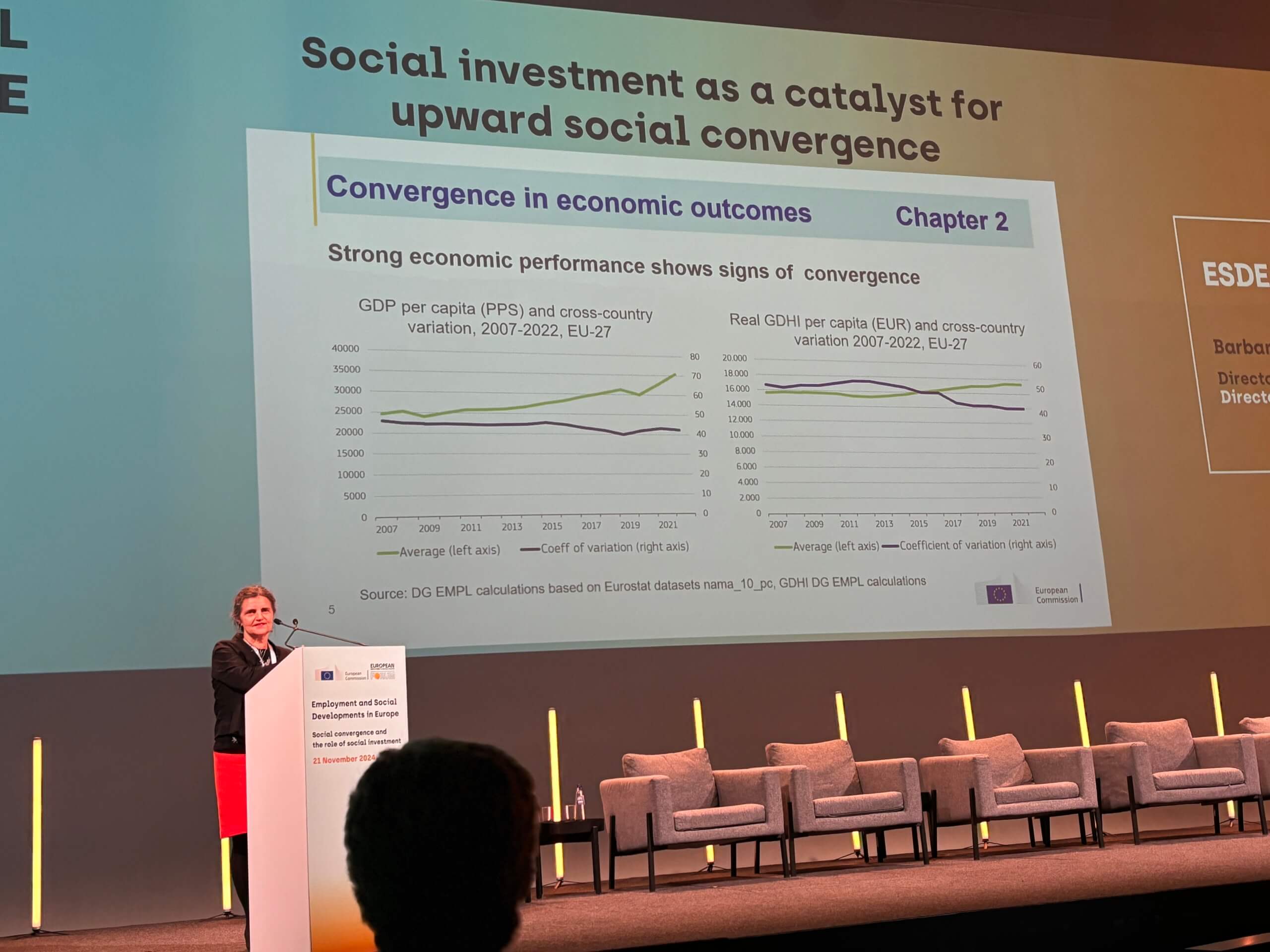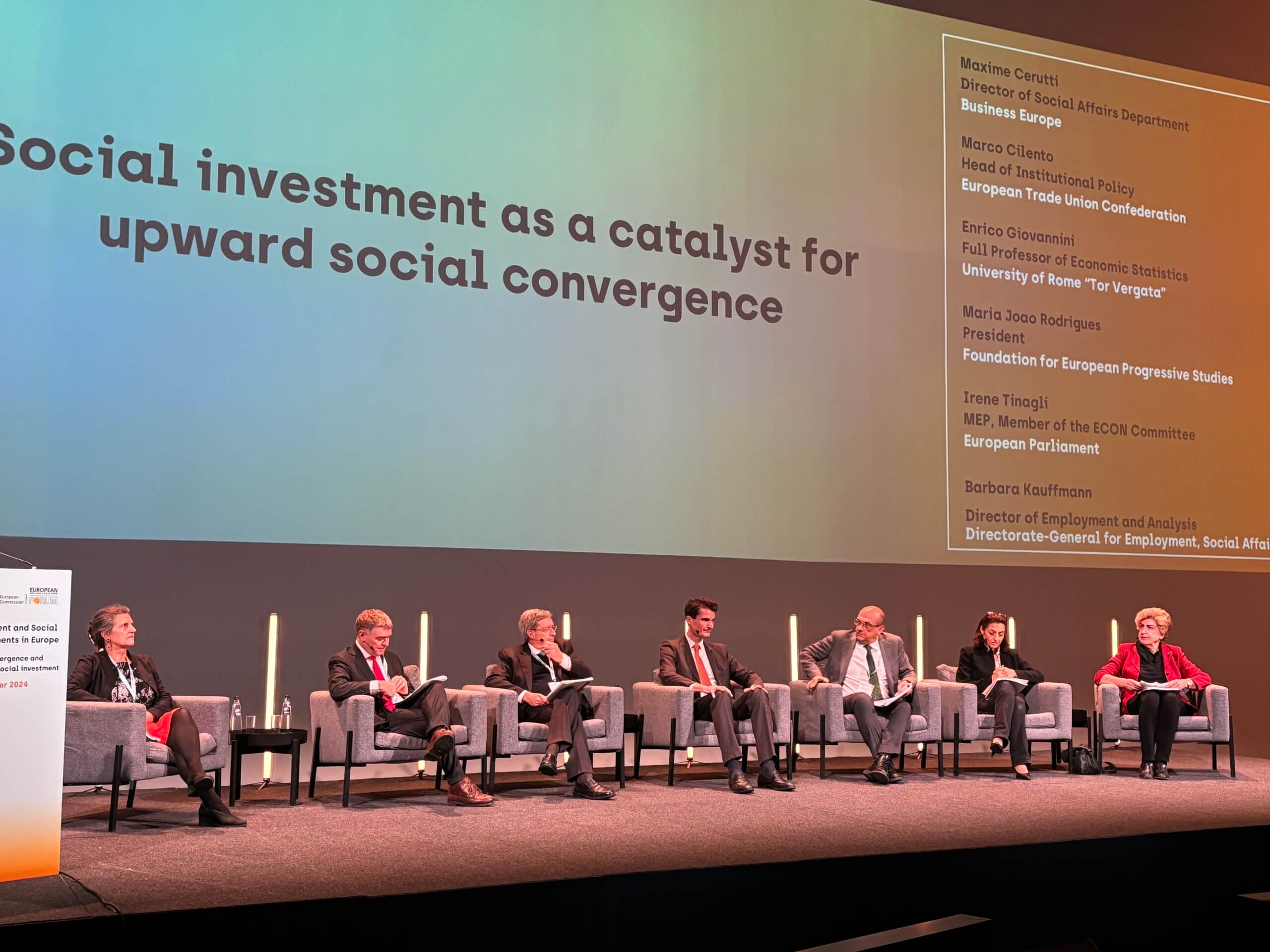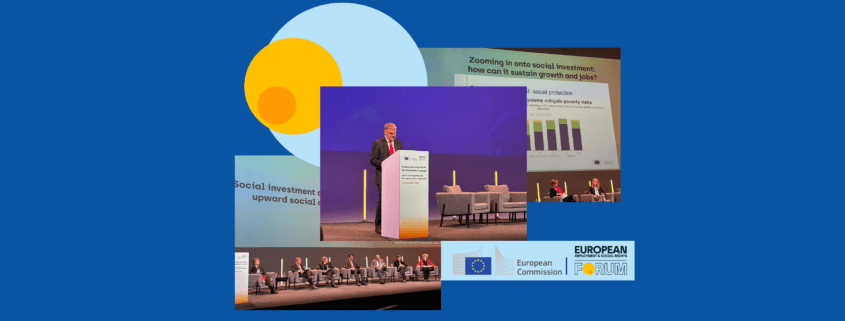People’s Well-Being Equals Economic Success: Insights from the European Forum on Employment and Social Developments 2024
“You cannot think about EU productivity without considering the EU social model,” remarked Lúcio Vinhas de Souza, Director of Economics at BusinessEurope, setting the tone for a high-stakes dialogue at the European Forum on Employment and Social Developments 2024.
This year’s forum was held in Brussels on 21 November. It focused on Europe’s record-breaking employment figures, rising social inequalities, and the urgent need to align social investment with economic growth amid ongoing transitions.
The European Union is celebrating unprecedented employment milestones as it grapples with the challenges of competitiveness, inequality, and demographic shifts.
At the European Forum on Employment and Social Developments 2024, social partners (such as CEC European Managers), policymakers, and stakeholders converged to listen and discuss the latest trends, challenges, and opportunities in shaping the EU’s socio-economic future.
EU Historic Milestones
The European Union reached its highest employment rate at 75.3%, with women’s employment surpassing 70% in five Member States for the first time. Meanwhile, youth unemployment declined to 14.5%, and the share of NEETs—youth not in employment, education, or training—dropped to 11.2%.

Barbara Kauffman, Director of Employment and Analysis, Directorate-General for Employment, Social Affairs and Inclusion, highlighted these achievements but tempered the celebration: “The risk of poverty is not decreasing as fast as we wanted. While central and eastern EU countries are catching up faster, wealth concentration is growing, with 10% of the population holding 50% of the wealth.”
Competitiveness Reimagined
Mario Nava, Director-General for Employment, emphasized the importance of productivity for competitiveness, framing his strategy around Von der Leyen’s Guidelines, Draghi’s Report, and social rights working groups and initiatives established under Spanish and Belgian EU Council presidencies. “Social investment is a pivotal tool for innovation. Upskilling and reskilling are the call to action,” Nava urged.
Tanguy Desrousseaux, Director for Housing at the European Investment Bank, concurred: “We need social investment. Transitions such as the green shift cannot happen without it.”
Women’s employment has surpassed 70% in five Member States
Judith Kirton-Darling, Secretary General of IndustriAll, underscored the urgency of addressing inequality: “The danger to inequality is bigger than anything else. Our social model is key to our success.”
Elizabeth Kuiper of the European Policy Center called for a paradigm shift: “Human capital is one of the main enablers of competitiveness. People’s well-being equals the well-being of economies.”

Housing and Skills: Regulations through Social Dialogue
Housing emerged as one of Europeans’ core preoccupations, as data shows it is at the core of social inequality, particularly for younger generations. “We must support territorial development and sustainable transport to address housing affordability,” Desrousseaux stressed. He described housing as “the hottest topic among Europeans,” emphasizing that solutions must come from local leadership.
The forum also spotlighted Europe’s skills gap. “We are seeing the highest levels of labour participation ever, but are we using our labour capacity in the best way?” Vinhas de Souza questioned.
Kuiper noted, “The aging population presents challenges. Workers aged 55-59 participate at 80%, but their needs differ from younger workers.”
Kirton-Darling added, “Skills shortages are not the same as labour shortages. Migration is part of the solution, and we must adapt policies to labour market needs.”
Amid debates on regulation, Vinhas de Souza urged harmonization: “The regulatory tsunami of recent years needs to be coordinated to avoid harming productivity.” Kuiper saw regulation as a tool for delivery: “We must measure the impact of regulation on competitiveness and build better narratives around social investment.”
Kirton-Darling championed social dialogue, stating that Trade unions are fundamental to a civilized, democratic society. Social dialogue and collective bargaining will be more critical than ever.

Social Investment: A Catalyst for Convergence
The forum highlighted social investment as a driver of upward convergence and economic resilience. Enrico Giovannini, a professor of Economic Statistics, argued, “We are in the middle of a skills transition. As we navigate green, digital, and AI transformations, we must ensure no one is left behind.”
Employers launched a call for support. Maxime Cerutti of BusinessEurope said, “Employers fund 90% of adult training but need institutional backing. Social investment means investing in our future growth through skills for us, the employers.”
Marco Cilento of the European Trade Union Confederation (ETUC) stressed the role of collective agreements in securing these investments: “Countries with collective agreements see higher investments. Social dialogue is essential for crafting effective labour policies.”
Glenda Quintini of the OECD highlighted barriers to training: “44% of adults say they don’t have time, and 15% find it too expensive. Training must be more accessible.” Ilze Plavgo from ESPOL underscored early investment: “The first three years of life are crucial for skills development. Education is important, but housing is just as critical.”
The Future of Europe’s Social Model
As the forum concluded, Andriana Sukova of the European Commission reinforced the importance of Europe’s social model. “It must be protected and adapted to address demographic shifts and economic transitions.”
Maria João Rodrigues, President of the Foundation for European Progressive Studies, summarized the challenge: “Economic convergence must lead to social convergence. We need an industrial policy for the future that balances reskilling, competitiveness, and social cohesion.”
The European Forum delivered a clear message that CEC European Managers, represented by Director Olga Molina and Communications Officer Pere Vilanova (participants at the event), can endorse: social investment is not just a moral imperative—it is the backbone of Europe’s economic strategy in a rapidly evolving world.
Social investment is not just a moral imperative—it is the backbone of Europe’s economic strategy in a rapidly evolving world.




